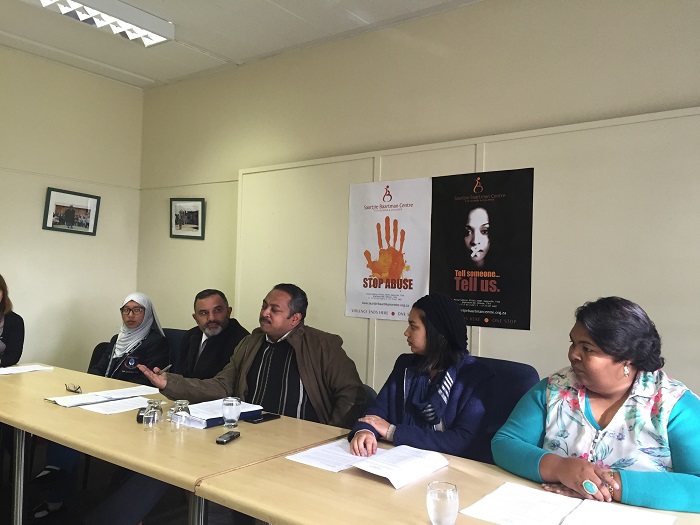The Saartjie Baartman Centre conducted a panel discussion on Thursday to raise awareness on Child Protection Week, which takes place from the 26th May to the 1st June. The panel included principals from local schools, child counsellors, social workers, a student representative and police in an attempt to discuss issues affecting young people today which include gangsterism, drug abuse, bully and domestic abuse. The panellists offered insight into the current challenges children faced along with suggestions on how it can be combated.
According to child counsellor, Zeenat Osman, children learn social behaviour from within their homes first. When a child is reared in an environment where violence and abuse reigns, they often interpret this as “normal” behaviour and move on to become accepting of violence and abuse amongst their peers at school or on the playground.
“Children are taught how to respond and communicate at home first. When that is not taught to them on a healthy level, they won’t know how to interact with others. In addition, if they are growing up in gang infested environments, obviously the behaviours that they are going to be left with are negative ones. What we do in counselling is we try to unlearn those negative behaviours and teach them how to communicate effectively,” Osman said.
Manenberg Police Lieutenant Ian Bennett said police are often called to neighbouring schools to either educate learners of the realities of violent behaviour and further act as role models to children who have very little positive examples of success in their communities.
The panel discussion also highlighted the plight of educators who are on the front-line of engaging with children and young adults. Heideveld Primary School Principal, Rosdien Desai said teachers are overwhelmed in the classroom and are often ill-equipped in dealing with the psychological effects of abuse on learners.
“Sometimes we find there are kids who come from a home where domestic violence and abuse takes place. Some often incite violence from other kids and fights ensue. Now imagine you’re teaching a classroom of over 40 pupils and this happens. Our teachers cannot deal with these situations. We need more counsellors on school premises to assist educators and to educate our learners on speaking out against violence and abuse,” Desai added.
The centre has reported a 65% year on year increase in the number of women accessing its services in recent years to date. According to Osman, the patterns and trends of abuse are changing as women are entering the facility, seeking help from as young as 16 years old.
The Centre, a refuge for abused women and children currently houses 60 children and 40 women. However, young women, with babies seem to display a lack of parenting skills which Osman attributes to the rearing they received in their childhood.
“Children don’t always know how to verbalise what is happening to them because they are not socialised to speak about matters of abuse. We need to start with establishing emotional vocabulary so that they know how to express themselves and then report abuse they are currently facing,” Osman said.
A 44 year old teacher from the northern suburbs has found refuge at the centre after ending an eighteen year abusive relationship with her spouse. Requesting to withhold her identity, Michelle* told VOC her children display anti-social behaviour as a result.
“For all the years I accepted the emotional and psychological abuse by ex-husband. He kept our family isolated. We could never interact with family or friends or he would get violent and emotionally abuse us. I finally ended the relationship and came to the centre. My two children aged twelve and fourteen are with me here and I can now see how this abuse affected their social behaviour. We are working closely with the counsellors here to find ways of communicating better. I want my daughter to see that this is not the kind of man she should marry and I want my son to be a better man than his father,” Michelle explained as she fought through tears.
Earlier this year, the centre launched a Life Skills programme for schools designed to identify, discuss and address multiple manifestations of violence. According to Osman, the coursework looks at domestic and sexual violence, bullying, substance abuse and unhealthy methods of coping with emotions like anger.
VOC (Ra’eesah Isaacs)






 WhatsApp us
WhatsApp us 

